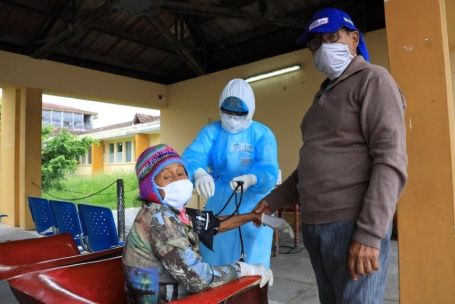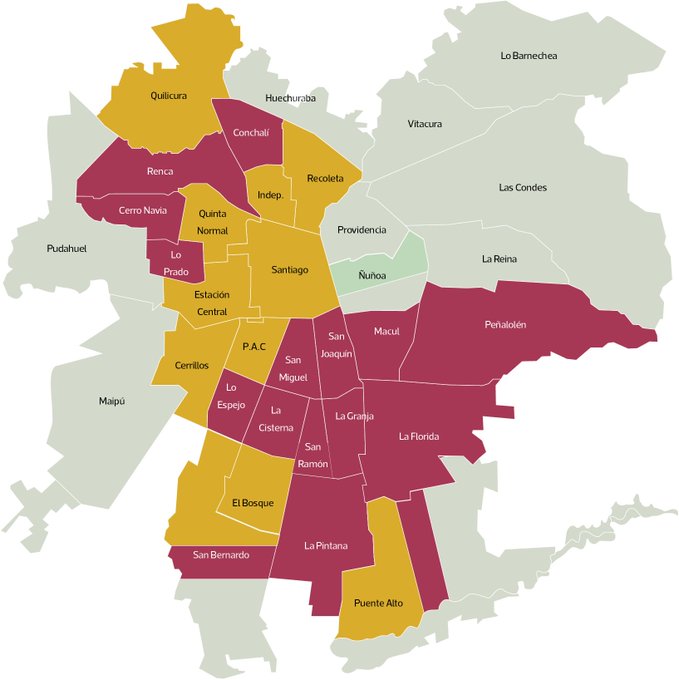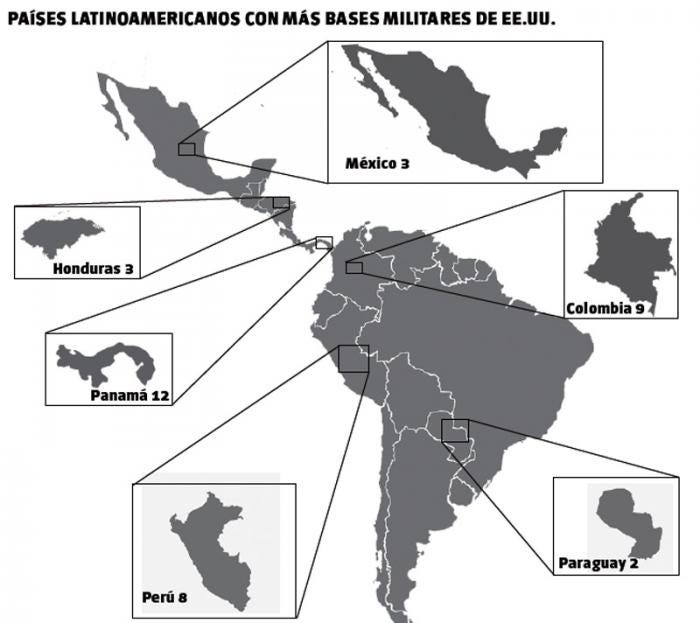'We're Living in a Catastrophe': Peru's Iquitos Hit by COVID-19

Iquitos, still reeling from a dengue fever outbreak and plagued by poverty, is now facing the COVID-19 pandemic. | Photo: social networks
Published 7 May 2020 (11 hours 13 minutes ago)
Iquitos, still reeling from a dengue fever outbreak and plagued by poverty, depends on air deliveries for medicine, equipment and oxygen to face a pandemic of the magnitude of COVID-19.
Hemmed in by a sea of jungle, plagued by dire poverty and already reeling from a dengue fever outbreak, Iquitos is now the second major Amazon city – after Manaus in Brazil – to take a brutal hit from the COVID-19 pandemic.
After the impact of the pandemic, Iquitos faces an added obstacle in efforts to contain the disease, as the largest city in the world, which cannot be reached by road; it depends on intermittent air deliveries for essential supplies of medicine, personal protective equipment, and oxygen.
"We are living in a catastrophe," Graciela Meza, executive director of the regional health office in Loreto, the vast Amazon region which surrounds the city of half a million inhabitants, said to The Guardian.
The city's main public hospital was overflowing with nearly five times the number of patients its 180 beds could hold, said Meza, who herself was also recovering from the virus.
"I've never seen anything like this in my life, or even in my dreams," said Meza, a lifelong Iquitos resident, who compared the situation to living in a disaster film.
"Most victims have died from a lack of oxygen; 90 percent have died because of lack of medical supplies," Meza added.
She had counted dozens of dead every day over the last three weeks, including two nurses and three doctors – the latest a junior doctor in his twenties.

A woman receives medical assistance at Loreto Regional Hospital. Photograph: Getty Images
Just how bad Loreto's COVID-19 outbreak remains unclear, but few in Iquitos doubt it exceeds the official count of 62 dead and 1,595 confirmed cases as of Wednesday.
Hundreds of critically-ill patients were seated outside in rocking chairs around the hospital grounds or, in the last few days, in three field hospitals erected in football pitches and stadiums in the city.
"There's no oxygen in the lungs of the world," Meza remarked bitterly, referring to the city's Amazon location. "That should be the headline for your story," she added.
Her tone switched to anger as she said: "We only have our dreadful authorities to blame for their corruption and decades of chronic under-investment in healthcare."
The comments reflected growing outrage at the slow response of the regional government amid allegations that private companies were profiteering from a monopoly on oxygen tanks.
The local prosecutor's office in Iquitos has announced an investigation into reports that the Loreto regional government was paying inflated prices for oxygen cylinders – including alleged purchases from a company owned by the daughter of a councilor.
In the final hours before COVID-19 claimed her life, Cecilio Sangama watched helplessly as his eldest sister Edith gasped for breath, while he was unable to purchase a cylinder costing above $1,000.
"Her body could not hold on. She needed oxygen, but we just couldn't afford it," said Sangama, 49, a municipal worker, speaking by telephone from Iquitos.
"I had promised her: 'Don't worry, sister, today I will find you a cylinder,'… but in the end, there was nothing I could do." His voice broke, and he fell silent for a few seconds. "My sister died just a few hours ago; we are trying to find a way to give her a Christian burial."

Patients occupy cots in the corridors of Loreto Regional Hospital due to high demand. Photograph: Getty Images
According to the medical team, much of the disaster that Iquitos is experiencing has to do with the negligence of the government that on Monday promised to bring medical supplies and oxygen as well as replenish the number of medical professionals, as more than a dozen of them infected with COVID-19 were evacuated. But these promises came too late, they claim.
"We asked for the medicine more than a month ago," Agustina Huilca, president of the local doctor's federation, said. They desperately need strong antibiotics, anti-coagulants, and anti-inflammatory drugs to treat COVID-19, she highlighted.
"[As doctors], we feel impotent, frustrated, and isolated. We feel abandoned by the government," Huilca added.
The pandemic could not have come at a worse time since Iquito was already struggling with the end of a dengue outbreak, along with an outbreak of leptospirosis. Both dengue and COVID-19 cause fevers that have complicated diagnoses. At the same time, the warm climate of the city, overcrowded living conditions, poverty, and geographical isolation are the perfect setting for an unprecedented crisis.
"I suspect that in Iquitos the situation is already out of control," Valerie Paz-Soldan, a Peruvian-American social scientist and director of Tulane Health Offices for Latin America, said.
https://www.telesurenglish.net/news/Wer ... -0014.html
This may put the lie to the contention that #19 is suppressed by high temperature and humidity. It is always hot & humid in Iquitos.
*************************************************
Peru: Penitentiary System President Resigns After Prison Crisis

Inmates of Miguel de Castro Prison, Lima Peru. April 2020. | Photo: Twitter/@RedRadioVe
Published 7 May 2020
Villar took office on March 24, amidst the Covid-19 outbreak in the South American nation.
Peruvian President Martin Vizcarra received Gerson David Villar Sandy's resignation as president of the National Penitentiary Council (INPE).
Villar took office on March 24, amidst the Covid-19 outbreak in the South American nation. During his management, several inmate riots occurred resulting in 12 convict deaths. The protesters were demanding health care and sanitary security in prisons after two guards died due to the virus.
In a second inmate violent demonstration in Miguel Castro penal facility, nine inmates died. Also, in Huancayo penal facility another riot occurred due to the virus outbreak among the inmate population. Besides, over 250 guards and prison workers tested COVID positive during Villar's time in office.
Several social organizations criticized the former president of the National Penitentiary Council because of his lack of strategic guidance in facing the virus and the lack of sanitary protection to both inmates and guards. The Peruvian Ombudsman Office requested the government in late April for inmates’ release to prevent more cases.
"COVID-19 is deepening the critical situation of prisons in Peru," warned Jan Jarab, Representative of the United Nations High Commissioner for Human Rights.
On May 4, nine inmates were released under humanitarian reasons in the context of the health emergency. Peruvian government also aims for mitigating overcrowding in prisons to restrain the spread of Covid-19.
As local news media reported, Rafael Eduardo Castillo Alfaro took over the position on May 6 as Peruvian National Penitentiary Council president. His office assumption occurs amidst the virus spreading in the South American nation, a famine exodus, and social discontent due to a lack of an effective governmental response to the virus.
So far, Peru registers 54,817 COVID positive cases, 1,533 deaths, and 17,527 recoveries.
https://www.telesurenglish.net/news/per ... -0011.html
*********************************************
Chile: Santiago City's Neighborhoods Enter New Confinement

Image of everyday life in a neighborhood, Santiago, Chile, May 7, 2020. | Photo: EFE
Published 7 May 2020
This South American country is experiencing an increase in new cases since last week.
Chile’s Health Minister Jaime Mañalich Wednesday announced that a dozen neighborhoods in Santiago will return to confinement from Friday onwards due to the worrying advance of the pandemic in a city that concentrates 85 percent of the new infections.
"We have to look at the metropolitan region very carefully. The disease is moving towards neighborhoods that are more vulnerable due to their population density, economic situation, and type of housing," Mañalich said.
"The situation in the country is heterogeneous. Now we have to fight in Santiago and move forward together and with enormous effort," he added.
Unlike countries such as Argentina or Colombia, which ordered quarantine since the first COVID-19 cases began to become evident, Chile did not want to decree national confinement and opted for "selective and strategic quarantines."
This health policy implies that restrictions are imposed and enforced. they rise in each neighborhood or city according to the number of new infections.

Map showing Santiago's neighborhoods that will remain in quarantine from Friday.
However, President Sebastian Piñera decreed a state of emergency with a curfew starting at 10 pm and ordered schools, universities, and non-necessity businesses to close their doors.
Although his officials have proclaimed that the peak of the contagion has been exceeded, Chile is experiencing a significant increase in new cases since the middle of last week.
In the last 24 hours, for example, 1,032 new COVID cases and 6 deaths were reported, which increases the total number of infected to 23,048 people and death toll to 281.
Among the poor neighborhoods that will be quarantined are La Florida, Cerro Navia, and Renca.
Meanwhile, people will be able to move without restrictions in the upper-class neighborhoods located east of Santiago city, where the first COVID-19 cases were detected in early March.
https://www.telesurenglish.net/news/Chi ... -0005.html
















